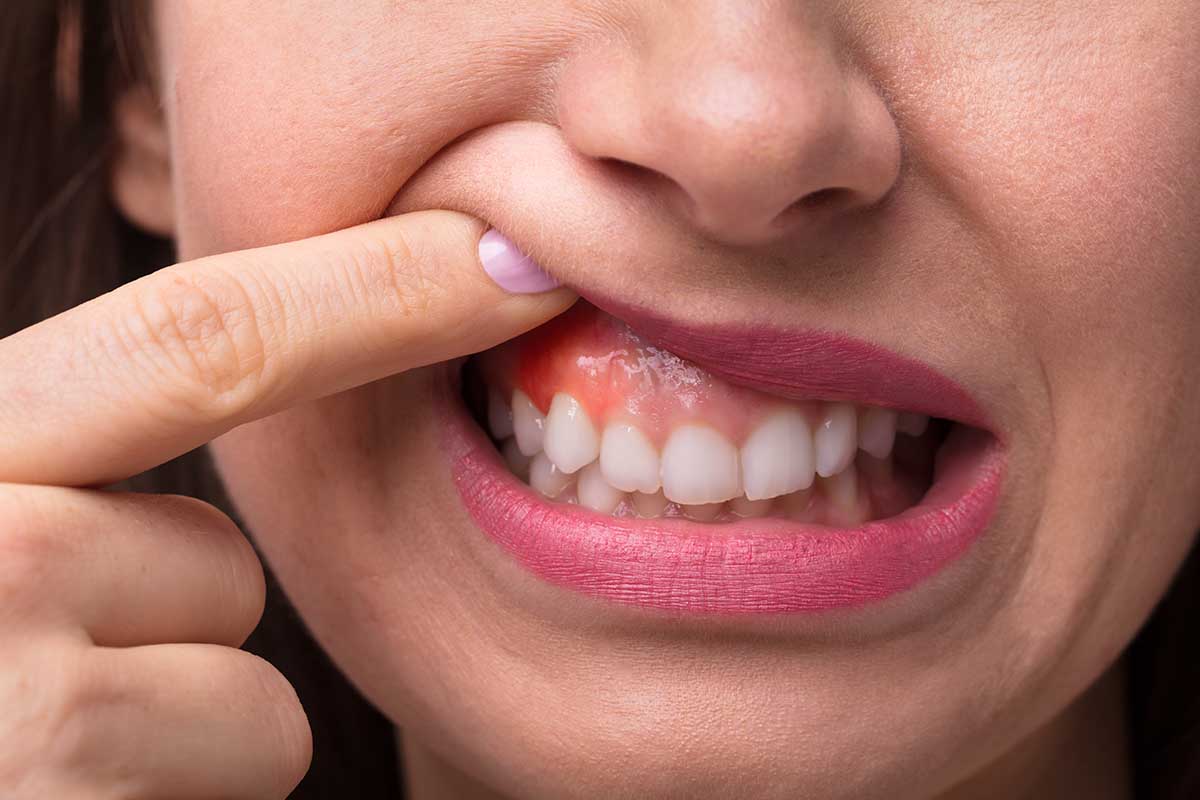Oral cancer affects the lips, cheeks, floor of the mouth, and tongue. It can also affect the throat, sinuses, and soft palate. As a result, it’s essential to get it treated as soon as possible. Failing to do so could lead to significant illness and may be life-threatening.
Mouth cancer falls into a category of cancers called head and neck cancers. These are all treated similarly. An early diagnosis makes treatment simpler.
What Are the Symptoms of Oral Cancer?
The symptoms of oral cancer vary from person to person, but some of the most common symptoms include:
- Loose teeth
- Red or white patches inside the mouth
- Ear pain
- Mouth pain
- Lumps or growths inside the mouth
- Sores that do not heal
- Painful swallowing
- Difficulty swallowing
If you begin to have these symptoms or notice unusual changes in your mouth, sinuses, or throat, it’s important to see a doctor.
Normally, if these changes persist for two weeks or longer, it’s time to see a dentist. Let the dentist investigate the common causes, like acidic food that leads to sores or abscesses that may cause lumps or bumps, and then they will determine if they need to do additional testing for oral cancer.
What Causes Oral Cancer?
Oral cancer is caused by the uncontrollable growth of cells in the tissues within the mouth, throat, or sinuses. This uncontrollable growth can lead to lesions and sores that do not go away on their own. The changes happen because of mutations in the DNA.
The mutations lead to healthy cells dying off and being replaced with abnormal cells. Those mutated cells may form a tumor and spread throughout the mouth, neck, head, and other areas of the body.
Right now, no one knows for sure what causes the mutations that lead to mouth cancer, but there are many risk factors and actions that could trigger these changes.
Common causes of oral cancer include:
- Heavy alcohol use
- Excessive sun exposure
- Tobacco use
- A weakened immune system
- Human papillomavirus (HPV)
Fortunately, there are some steps that you can take to prevent oral cancer, too.
How Can You Prevent Oral Cancer?
A few ways to prevent oral cancer in the mouth, nose, and throat include:
- Stop smoking cigarettes, cigars, and everything else.
- Seeing your dentist at regular intervals so that your mouth can be examined for unusual changes
- Avoid sun exposure on the lips, or use sunscreen lip products if you will be exposed.
- Drink alcohol in moderation if you do drink because excessive alcohol use can irritate the mouth and cause cancer.
- Stop using chewing tobacco. Chewing tobacco is known to cause mouth cancer.
What Are the Best Ways to Treat Mouth Cancer?
After a diagnosis, a treatment plan can be made. This may include surgery to remove the cancerous cells, for example, radiation therapy or chemotherapy. Some people also benefit from targeted drug therapy or immunotherapy.
The earlier this cancer is identified, the easier the treatments are. In later stages, surgeries may be necessary to correct the jaw or damage to the sinuses or throat. These surgeries can be painful, so it’s best to
Contact Ricci Orthodontics for Help With Oral Cancer Screenings in Georgia
At Ricci Orthodontics, we are here to help you identify oral cancer signs and symptoms. We perform oral cancer screenings at every appointment, and we understand the best ways to approach if cancer is detected. With regular checkups, it’s possible to catch this type of cancer early and to prevent the spread. Contact us today to make an appointment and to learn more about the oral cancer signs at [Direct], or contact us online.
Tags: cancer screening, oral cancer, oral care
